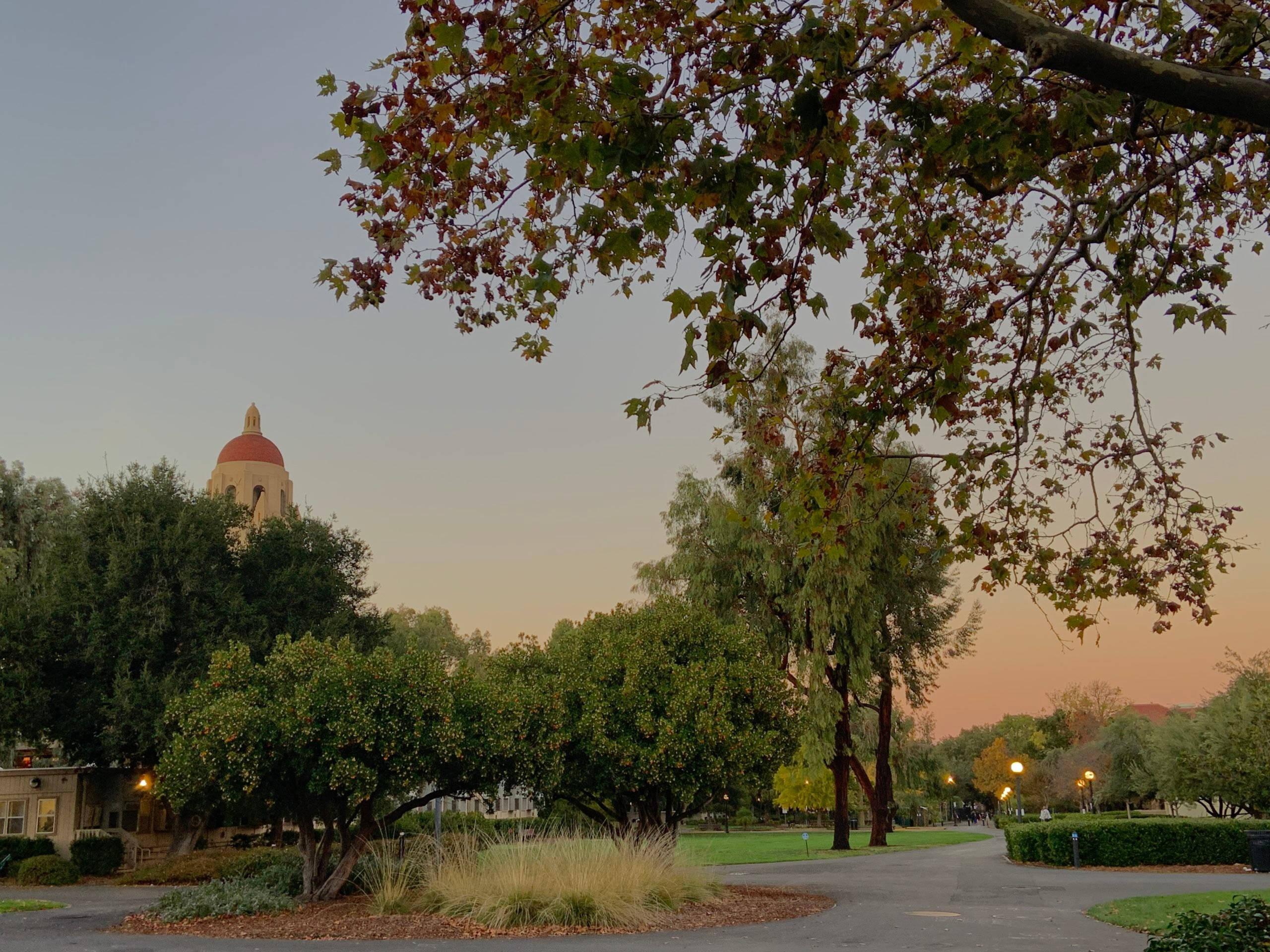Members of the Faculty Senate expressed their uncertainties regarding proposed changes to a policy surrounding conflicts of interest and commitment and emphasized the importance of supporting the needs of emeriti/ae faculty on campus during their Thursday meeting.
Provost Persis Drell also reported an uptick in student and faculty COVID-19 cases after break, with more than 200 students currently in isolation. Drell emphasized the University’s decision to continue requiring masks in classrooms pending further announcement, but noted that after this week, weekly testing would only be required for non-boosted students and for faculty, staff or postdocs who are not fully vaccinated.
School of Medicine professor David Spiegel asked Drell about statements made by Scott Atlas, a Hoover Institution senior fellow, about vaccine mandates when Atlas was speaking at Michigan State University on March 23.
“Atlas told the crowd, ‘Any university president that requires vaccination of healthy young students should be fired.’ Does this fall within the bounds of protected and, equally important, responsible academic speech?” Spiegel asked Drell. “You have told the Senate recently that increasingly Hoover is us and we are them; well if that is so, I’m exercising my academic freedom to make it clear that what Atlas said is not us, and we are not him.”
Drell indicated her support for Spiegel’s “exercising [his] academic freedom to make these comments,” but added that, “the provost of Stanford University is not going to be, and should not be, the speech police person for Stanford University.”
The Senate also discussed proposed changes to Stanford’s Research Policy Handbook, which intends to clarify the process of disclosing interests and incorporate more strictly delineated rules of disclosure regarding international agreements and commitments.
David Studdert, a law professor and the acting vice provost for research, presented the changes recommended by the Committee on Research (C-Res) alongside Cindy Kiel, the associate vice provost for research policy and integrity. The changes involve rearchitecting the fourth section of the handbook, which focuses on conflicts of commitment and interest.
The proposed revisions come in the face of increased pressure placed on universities nationwide by federal agencies to both disclose and manage conflicts of interest among faculty, as well as a series of convictions of academics who failed to disclose ties to foreign governments.
Studdert and Kiel attempted to clarify the list of activities which would require prior approval, such as outside employment related or similar to Stanford responsibilities or “consulting” that substantially overlaps with such responsibilities. Additionally, they noted that guidance from federal agencies spurred proposed changes such as outlining the need for faculty to obtain prior approval before participating in a talent program sponsored by a foreign government and disclosing certain relationships with labs at foreign universities that receive the funding from foreign governments.
“The White House emphasizes how the presence of conflicts of interest and commitment threatens core commitments to openness, transparency, objectivity, fair competition and maintaining public trust in research,” said Studdert. “It’s not just a philosophical interest or aspiration, we’re seeing a wave of new rules across the federal agencies, as well as new interpretations of old rules.”
“We’ve all been worried about some high profile criminal prosecutions of professors and institutions, or undisclosed conflicts. This is sowing fear and confusion, we get that, and frankly, it’s very worrying,” Studdert added. “The primary goal of all of this is to protect our faculty, staff and students; it’s not to catch you out.”
Numerous members of the Senate expressed their uncertainty surrounding the proposed changes, asking for more time to consider the implications of the proposal. Some also raised concerns about how the information pertaining to their interests and commitments would be stored, distributed and used.
“One of the things that does not appear to be here at all is what happens with the information that faculty disclose,” said medicine professor Andrew Fire. “Will that be publicly disclosed? If a faculty member goes to Ukraine right now, is that disclosed, because they have contracts with a foreign institution?”
Ultimately, the motion to table the proposed changes passed unanimously, and members of the Senate indicated their interest in further exploring and discussing the proposal.
The Senate also heard a report by Iris Litt, the Marron and Mary Elizabeth Kendrik Professor in Pediatrics, Emerita, from the Emeriti Council about the issues facing the emeriti/ae community at Stanford. The presentation was guided and bolstered by data collected in a 2019 survey of Stanford’s emeriti/ae population. According to Litt, the emeriti/ae population faces unique challenges like isolation and loneliness, ageism and vulnerability to life-threatening complications associated with COVID-19.
“Since retiring, most [emeriti/ae] report concern and dismay because of their sudden invisibility,” said Litt. “They lack a space and an opportunity to continue to engage in intellectual and social interaction with their colleagues and peers. It is very important to help them sustain purpose, as well as their continuing need for intellectual stimulation.”
Litt emphasized the importance of lectureships like the David Abernethy Lectureship and the Longevity Series as venues for emeriti/ae to engage with the scholarly community at Stanford. She also underscored the need for improving senior faculty transition and examining the structure of the professoriate to support the emeriti/ae population.
